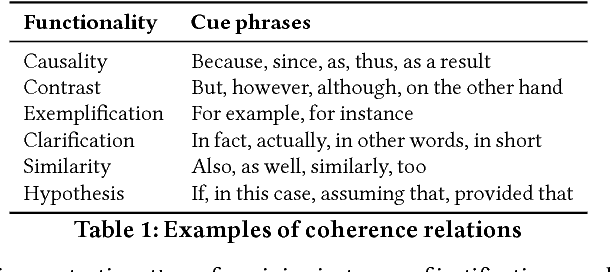Diomidis Spinellis
Athens University of Economics and Business, Delft University of Technology
Software engineering for deep learning applications: usage of SWEng and MLops tools in GitHub repositories
Oct 29, 2023Abstract:The rising popularity of deep learning (DL) methods and techniques has invigorated interest in the topic of SE4DL, the application of software engineering (SE) practices on deep learning software. Despite the novel engineering challenges brought on by the data-driven and non-deterministic paradigm of DL software, little work has been invested into developing AI-targeted SE tools. On the other hand, tools tackling more general engineering issues in DL are actively used and referred to under the umbrella term of ``MLOps tools''. Furthermore, the available literature supports the utility of conventional SE tooling in DL software development. Building upon previous MSR research on tool usage in open-source software works, we identify conventional and MLOps tools adopted in popular applied DL projects that use Python as the main programming language. About 70% of the GitHub repositories mined contained at least one conventional SE tool. Software configuration management tools are the most adopted, while the opposite applies to maintenance tools. Substantially fewer MLOps tools were in use, with only 9 tools out of a sample of 80 used in at least one repository. The majority of them were open-source rather than proprietary. One of these tools, TensorBoard, was found to be adopted in about half of the repositories in our study. Consequently, the use of conventional SE tooling demonstrates its relevance to DL software. Further research is recommended on the adoption of MLOps tooling by open-source projects, focusing on the relevance of particular tool types, the development of required tools, as well as ways to promote the use of already available tools.
Commands as AI Conversations
Sep 12, 2023Abstract:Developers and data scientists often struggle to write command-line inputs, even though graphical interfaces or tools like ChatGPT can assist. The solution? "ai-cli," an open-source system inspired by GitHub Copilot that converts natural language prompts into executable commands for various Linux command-line tools. By tapping into OpenAI's API, which allows interaction through JSON HTTP requests, "ai-cli" transforms user queries into actionable command-line instructions. However, integrating AI assistance across multiple command-line tools, especially in open source settings, can be complex. Historically, operating systems could mediate, but individual tool functionality and the lack of a unified approach have made centralized integration challenging. The "ai-cli" tool, by bridging this gap through dynamic loading and linking with each program's Readline library API, makes command-line interfaces smarter and more user-friendly, opening avenues for further enhancement and cross-platform applicability.
Machine Learning for Software Engineering: A Tertiary Study
Nov 17, 2022



Abstract:Machine learning (ML) techniques increase the effectiveness of software engineering (SE) lifecycle activities. We systematically collected, quality-assessed, summarized, and categorized 83 reviews in ML for SE published between 2009-2022, covering 6,117 primary studies. The SE areas most tackled with ML are software quality and testing, while human-centered areas appear more challenging for ML. We propose a number of ML for SE research challenges and actions including: conducting further empirical validation and industrial studies on ML; reconsidering deficient SE methods; documenting and automating data collection and pipeline processes; reexamining how industrial practitioners distribute their proprietary data; and implementing incremental ML approaches.
Code Review Comments: Language Matters
Mar 06, 2018

Abstract:Recent research provides evidence that effective communication in collaborative software development has significant impact on the software development lifecycle. Although related qualitative and quantitative studies point out textual characteristics of well-formed messages, the underlying semantics of the intertwined linguistic structures still remain largely misinterpreted or ignored. Especially, regarding quality of code reviews the importance of thorough feedback, and explicit rationale is often mentioned but rarely linked with related linguistic features. As a first step towards addressing this shortcoming, we propose grounding these studies on theories of linguistics. We particularly focus on linguistic structures of coherent speech and explain how they can be exploited in practice. We reflect on related approaches and examine through a preliminary study on four open source projects, possible links between existing findings and the directions we suggest for detecting textual features of useful code reviews.
 Add to Chrome
Add to Chrome Add to Firefox
Add to Firefox Add to Edge
Add to Edge